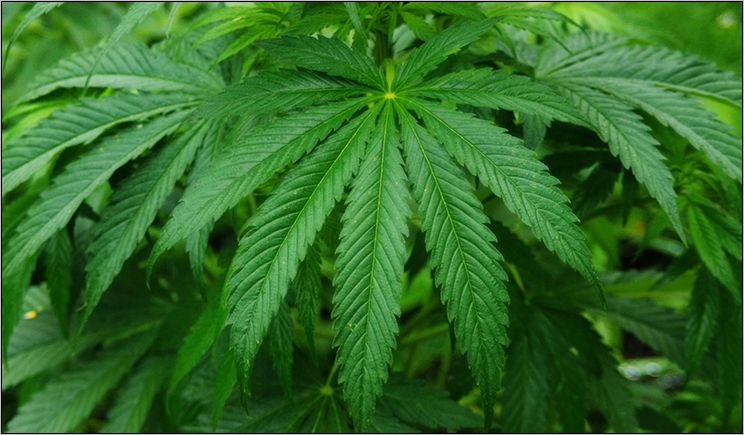
“Do you smoke?” asks the dentist as he leans back in his chair, his eyes fixed on the intake form in front of him to allow me the illusion of privacy. Sweat beads on my forehead as I realize that I’ve already hesitated too long. Am I a smoker? I reflect, defensively. Of course not.
I’m not the one who’s leaving cigarette butts in the front lawn.
I’m not the one whose breath smells like a dumpster fire.
I’m not the one who’s slowly poisoning myself, while simultaneously spreading a toxic miasma of secondhand death around my family and friends.
Draping myself in a façade of confidence, as thin as silk but more transparent, I answer, “Nope.”
No sir, I am a pothead.
Totally different. The dentist doesn’t need time to think. His eyes flash up from the pad as I suddenly develop a fascination with the floor.
He’s on to me.
“You sure?” he counters.
Damn. Foiled again.
“Because smoking anything like, I don’t know, weed can lead to many health problems,” he says.
His voice trails off as I consider how easily I can fool myself. Of course, pot counts as smoking. Regardless if it’s being used recreationally or medicinally, cannabis has consequences. Also, I shouldn’t have had that joint moments before going to the dentist.
How Does Marijuana Hurt the Mouth?
With the proliferation of medical marijuana dispensaries across the country, more and more people are experiencing pot’s purported health benefits. As weed becomes a more widely accepted adjunct to treatments, patients like me will find it very easy to forget that, like any medicine, there are negative side effects too.
For example, “cottonmouth” is a slang term that refers to the dry-mouth sensation experienced after smoking marijuana, resulting from the effects of tetrahydrocannabinol (THC) on the nervous system. Yet, it is not just some minor inconvenience easily remedied with the proper application of a half-gallon of sugary sports drink (as it is treated by most cannabis users). Cottonmouth can really hurt your oral health.
The steady production of saliva is essential for the maintenance of healthy teeth and gums. It is our saliva that washes bacteria-laden food particles away, keeping our mouth a little bit cleaner. When cottonmouth prevents that cleansing action, you can expect tooth decay, tooth loss, bad breath, and oral sores.
Also, your mouth is a delicate place. As such, it is not built to host a bonfire. So when you inhale any flaming herb, the tissue inside of the mouth is going to be agitated. Not only is the temperature alone abusive to the oral tissues, but the thousands of chemicals and toxins carried in the smoke also seep into every surface.
This causes a massive buildup of bacteria that will continue to linger in your ailing maw for hours if not days after your last smoke and may cause periodontal disease, inflammation of the gums, tooth decay, and tooth loss.
Furthermore, tobacco and cannabis products both usually include cancer-causing hydrocarbons when smoked in their herbal form. Also, research suggests that when the mouth experiences extreme heat like it does when someone is smoking, it can cause chemical changes inside oral cells, distorting them. This distortion makes smokers more susceptible to oral cancer.
With the exception of cottonmouth, most studies make sure to emphasize that when correlations were found between these oral diseases and pot usage, it was only marijuana in its dry (smoking) form that produced the result. There has been little to no evidence showing marijuana causing gum disease or oral cancer when it’s ingested in other ways that don’t include lighting leaves on fire, such as edibles and oils. In fact, as long as the user isn’t literally smoking cannabis, the opposite may be true.
Can Marijuana Help the Mouth?
Through studies of marijuana as a medicinal product, researchers have verified many fascinating benefits. Although it is far from being a respected treatment for oral health issues, in the not so distant future, it may well be a dentist’s best friend for several reasons.
First, the cannabinols in medical marijuana are highly effective at treating inflammation levels throughout the body. For example, I use a high-grade sativa heavy with cannabinols to treat my rheumatoid arthritis. To date, it is the most effective medicine for reducing pain from inflammation, other than high dosages of Prednisone. Since inflammation is one of the chief causes of many oral health problems, it is easy to see that these properties may be put to good use in the dental field.
Second, through the THC contained in marijuana, patients can manage pain better. That was the reason marijuana was first looked into as medicine in the 1960s in the first place. Not only is it effective at eliminating discomfort, it has fewer side effects than most conventional medications. Many doctors are praying for an option other than opioid painkillers to give to their patients. Medical marijuana may finally give us that elusive alternative.
However, most studies surrounding marijuana are still quite recent and require further review.
Is Weed Bad or Good for You?
Unfortunately, a lot more research is needed before anyone can make that determination. Federal authorities and social groups operating under outdated and unreliable information are preventing that research. And that is the point.
Doctors (it doesn’t matter what school of medicine they practice) must demand hard data on this potentially game changing plant. Only by clearing the air surrounding marijuana and by separating truth from urban myths and propaganda will we know if medical cannabis is an unexpected ally or vicious enemy.
Mr. Schefdore is a 2010 graduate of Columbia College in Chicago. He is a specialized technical author and ghostwriter and is a blog consultant with O Content. He can be reached at king@seoocontent.com or by visiting seoocontent.com.
Related Articles
The Growing Debate Over Medical Cannabis
Medical Marijuana and the Science of Relief











